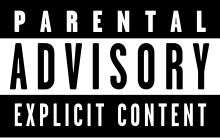At what point do young people become adults? In legal terms childhood ends at the 18th birthday, and though for many this comes around when still at school, in the eyes of the law the young person is then deemed responsible for their actions.
As opening paragraphs for an article on a placement and careers blog, this may seem like a bit of a random start, but a brief twitter conversation I had yesterday afternoon concerning students and their parents reminded me of a few occasions where this line of responsibility has become blurred beyond recognition.
At least a couple of times a year, I find myself having the telephone conversation from hell. I wish my employers would install at Batman-esque emergency red handset to give me prior warning of what is going to be at the other end of the line, but then the chances are I would run out of the building rather than take the call. I am of course referring to phone calls from concerned parents, anxious that their son or daughter has not secured a placement, and wanting to know why.
It is a prickly situation to find yourself in. Given that university students are fully grown adults, there is no obligation to speak to parents. In fact we are discouraged from doing so as they are not a client of the university. Parents of course see things differently and those who are providing their children with financial support want to make sure their offspring are getting a strong return on their educational investment. With the imminent rise in tuition fees, regrettably I foresee quite a lot more of these conversations occurring in the near future.
So what do you say to Mrs Bloggs when she phones to ask why her son Joe is sat playing X-Box instead of working? I keep the conversation in general terms rather than speaking directly about the individual.
I tell the parent about the placement lectures that are held throughout the year to help prepare the students for making applications and going for interviews.
I tell the parent about the numerous employer presentations that are hosted at the university which give students a chance to engage with recruiters in their chosen industry.
I tell them about the number of one-to-one appointments I have had with students throughout the academic year, where I have provided bespoke advice and guidance on CVs, applications and interview techniques.
I tell parents the number of companies and placement opportunities that I have advertised directly to the students on the course that Joe studies.
I tell parents about the weekly emails I circulate to students, informing them of upcoming placement deadlines, newly advertised opportunities and promoting employment related events.
I tell them if there are still opportunities available and encourage Joe to make an appointment to come to see me, in the same way that other students on Joe’s course have already managed to do.
I tell them that my door is always open, share my phone number and email address and that I look forward to hearing from Joe.
In most instances, Joe doesn’t call. Joe doesn’t email. Joe certainly doesn’t come in for an appointment to talk about placements.
Applying for placements means taking responsibility for your own actions. It is something that students have to do for themselves. Job hunting is a difficult process, and one that I’m glad that I don’t currently have to be engaged in on a personal level (touch wood!) but what does it say about Joe if his mother has to phone the university on his behalf? An employer isn’t going to take on somebody who is unable to organise themselves. Nor is a recruiter likely to look favourably upon a candidate if their mother rings to check on their application progress.
In my role I provide students at my university with a broad range of information, empower them through providing the tools needed to apply for placements and am readily available to offer advice and guidance. But just as you can lead a horse to water but can’t force it to drink, I won’t stand behind a student a force them to write applications.
I know my responsibilities. Students (and their parents) need to be aware of theirs.
